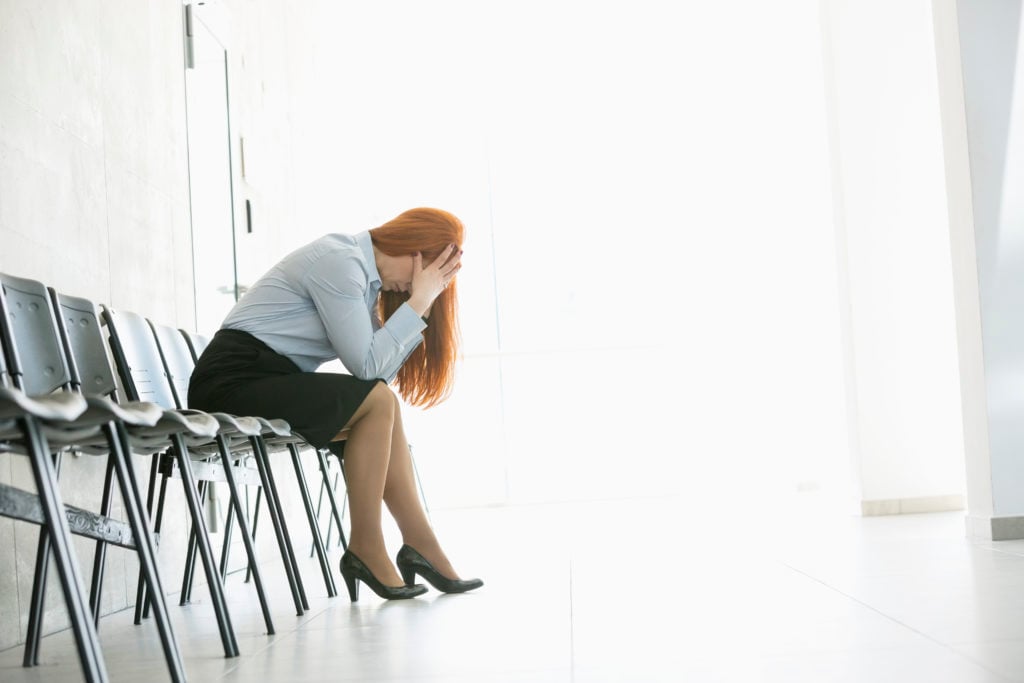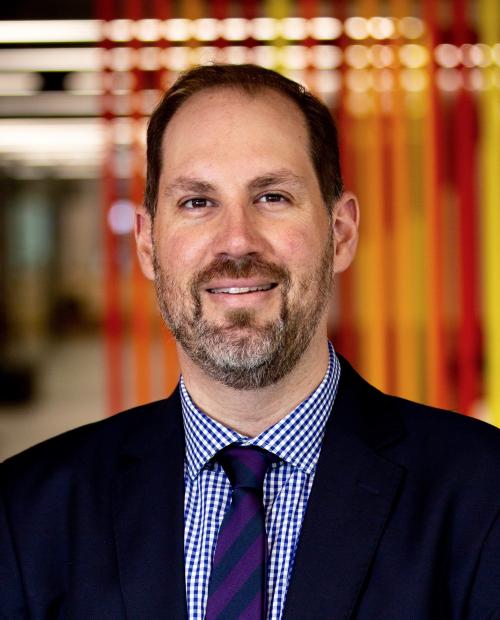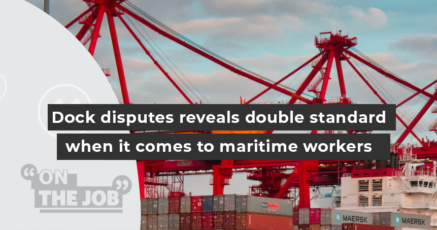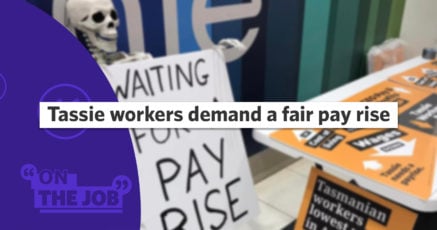
It’s the late-night phone call from your manager asking you to redraft that submission that’s due to be delivered in the morning when all you want is a date with your pillow.
Or waking up at 3am with your heart pounding as your mind races, trying to work out how you’re going to complete that job you’ve been asked to do with no support or few instructions on how to get it done.
And that sinking feeling in your gut when Monday morning comes around and you have to steel yourself for another week at a workplace where your expected to show how much you love your job by staying long past finishing time whilst at home, the kids need help with the homework and dinner won’t make itself.
Millions of Australian workers are being pushed to breaking point in situations just like these, and its time our work health and safety (WHS) laws were reformed to include comprehensive protection for workers from psychological hazards in the workplace.
Australian Unions has joined mental health academics and advocates in a joint statement that calls on the Morrison government and all WHS ministers to vote to back key reforms that would see psychological hazard regulations included in the Model Work and Health Safety Act which aims to standardise all WHS laws across Australia.
These reforms would require employers to deal with hazards to the mental health of their workers such as stress, violence and aggression in the workplace, bullying and sexual harassment, in the same way that physical hazards are dealt with – by identifying risks and warning signs and addressing them.
ACTU Assistant Secretary Liam O’Brien believes such reforms are long overdue.
“These reforms are essential to making Australian workplaces safer and reducing the instances of mental health issues and psychological injuries which affect working people every day.
“Australia is one of the only developed nations in the world to not have equal protections for physical and psychological health and safety.”
In order for these reforms to occur, the new WHS laws incorporated into the Model Work and Health Safety Act require six of the nine state and territory WHS ministers to agree to them. It’s likely that federal industrial relations minister Michaela Cash will have the deciding vote on the fate of the proposed legislation at a meeting to be held on May 20th.
O’Brien points out that the proposed changes stem from recommendations from two reviews the Morrison government commissioned – the Boland Review of Model WHS Laws and the Respect@Work report on sexual harassment in the workplace and it has a duty to act.
“These changes have been recommended by two extensive reviews ordered by government, and now Minister Cash has the opportunity to ensure they will become law in every workplace,” the ACTU Assistant Secretary said.
“There should be no difference between the way an employer is required to address a hazard which might impact workers’ mental health to that which impacts their physical health.”
Dr Carlo Caponecchia is the Associate Dean Equity, Diversity & Inclusion, Faculty of Science at UNSW and one of the signatories to the joint statement. He told On the Job theCOVID-19 pandemic has only exacerbated the mental health crisis in Australian workplaces.
“We know from workers compensation data [mental health issues] account for the highest cost of serious workers compensation claims and the longest time off work.”
Caponecchia pointed out that employers need to be made aware that how they run their workplaces and the expectations they have of their workforce can set the template for a safer workplace that protects the mental well-being of their employees.

He explained that psychosocial hazards in the workplace encompasses a broad range of scenarios.
“It’s about the way that work is organised as well as the work environment and the social aspects of work that potentially harm people’s health.
“Issues of bullying harassment and violence are crucial.
“It’s also things like the pace of your work schedule, your workload and whether there’s simply too much being asked of workers to do. It’s also about the quality of relationships in the workplace and the support that you might get.
“It encompasses things like the level of supervision that’s in place and opportunities for career development.
“One other important psychosocial hazard is role clarity, whether you know where your role starts and stops and how it relates to other people’s roles.
“It also relates to whether your role is in conflict where you have tasks that are oppositional to each other – like a call centre worker being told they need to provide excellent customer service but not to spend too much time on the phone.”
Liam O’Brien insists that these reforms can’t wait.
“Mental stress is the fastest and one of the only growing causes of injury claims in the workers compensation system. We need to act to make workplaces safer for all workers.”













SHARE:
Time to make mental health at work matter